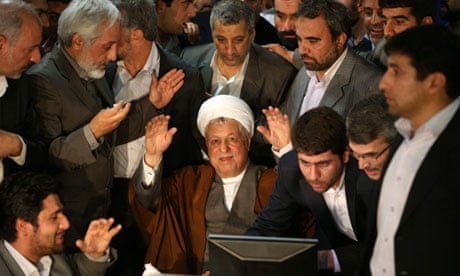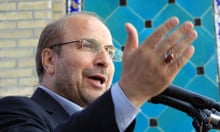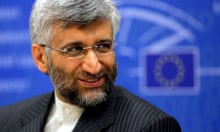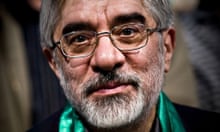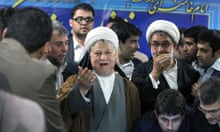Iranian opposition figures with various political allegiances have set aside differences and united to condemn the 14 June presidential election as a charade, saying the exclusion of candidates showed it lacks legitimacy.
Exiled Iranians from different political groups including republicans, leftists, constitutional monarchists and the green movement gathered for a two-day conference in Stockholm at the weekend, organised by the umbrella group United for Democracy in Iran (UDI) to scrutinise the vote.
Iran's constitutional body last week disqualified a large number of candidates from standing in the election and only allowed eight candidates. Former president Akbar Hashemi Rafsanjani, the leading opposition-backed candidate, was among those blocked from standing in the race.
A statement issued at the end of the conference described the vote as "an insult to the Iranians", saying it violates their rights to free elections. "The policies of the Islamic Republic, both internally and externally, have created numerous crises and placed our homeland in a truly precarious position," it said. "In these circumstances, the regime in Tehran is staging an election that bears no resemblance to free and fair elections in accordance with international standards."
Despite holding different and sometimes opposing views about the future of their country, UDI members, say holding a free election is the only way out of the current political and economical crisis in Iran.
"The adventuresome foreign policy of the regime, that has sacrificed Iran's national interests for the backward and self-serving viewpoints of a few, has positioned our country in unprecedented isolation, brought to bear back-breaking sanctions and imperilled the security of the nation," the UDI said.
"Free and fair election… is the most realistic and least costly way of bringing different viewpoints together and pave the way for the achievement of democracy to save our country from ruin and chaos."
Participants said they were not representing their political groups and were only attending in personal capacities. Prominent figures at the conference included lawyer Mehrangiz Kar, former diplomat Hossein Alizadeh and Mohsen Sazegara, a founding member of Iran's elite revolutionary guards who has fallen foul of the authorities for voicing opposition.
"We are convinced that only democracy – true democracy – can save Iran, which is why it is so important to shine a light on the phony democracy being practiced by the regime," said Sazegara.
Critics of UDI say the group has shown little influence given its presence in exile and has not yet succeeded in attracting a great deal of following inside the country despite holding three conferences in the past. Supporters concede it is yet to bear fruit but say that for the first time it has brought under the same umbrella opposition figures who have refused to work together in the past. Opposition leaders and former presidential candidates Mir Hossein Mousavi and Mehdi Karroubi are currently under house arrest in Tehran.
Iran's state-run media has not remained silent in reaction to the conference. Keyhan, a conservative newspaper whose director is directly appointed by the supreme leader Ayatollah Ali Khamenei, said UDI's slogan of free elections was merely an excuse to pave ways for military intervention in Iran.
The Young Journalists Club, affiliated to state-run television, labelled the group as terrorists who hold anti-Iran and anti-Islam views.
The Stockholm conference was held at the parliament of Sweden by the invitation of the Liberal People's party. In his speech at the gathering, Swedish MP Fredrik Malm predicted no change through ballot box in Iran. "We can unfortunately not imagine any change in Iran through ballot boxes. This is not free and fair elections in Iran. The regime does not believe in necessity of respecting international standards," he said.
